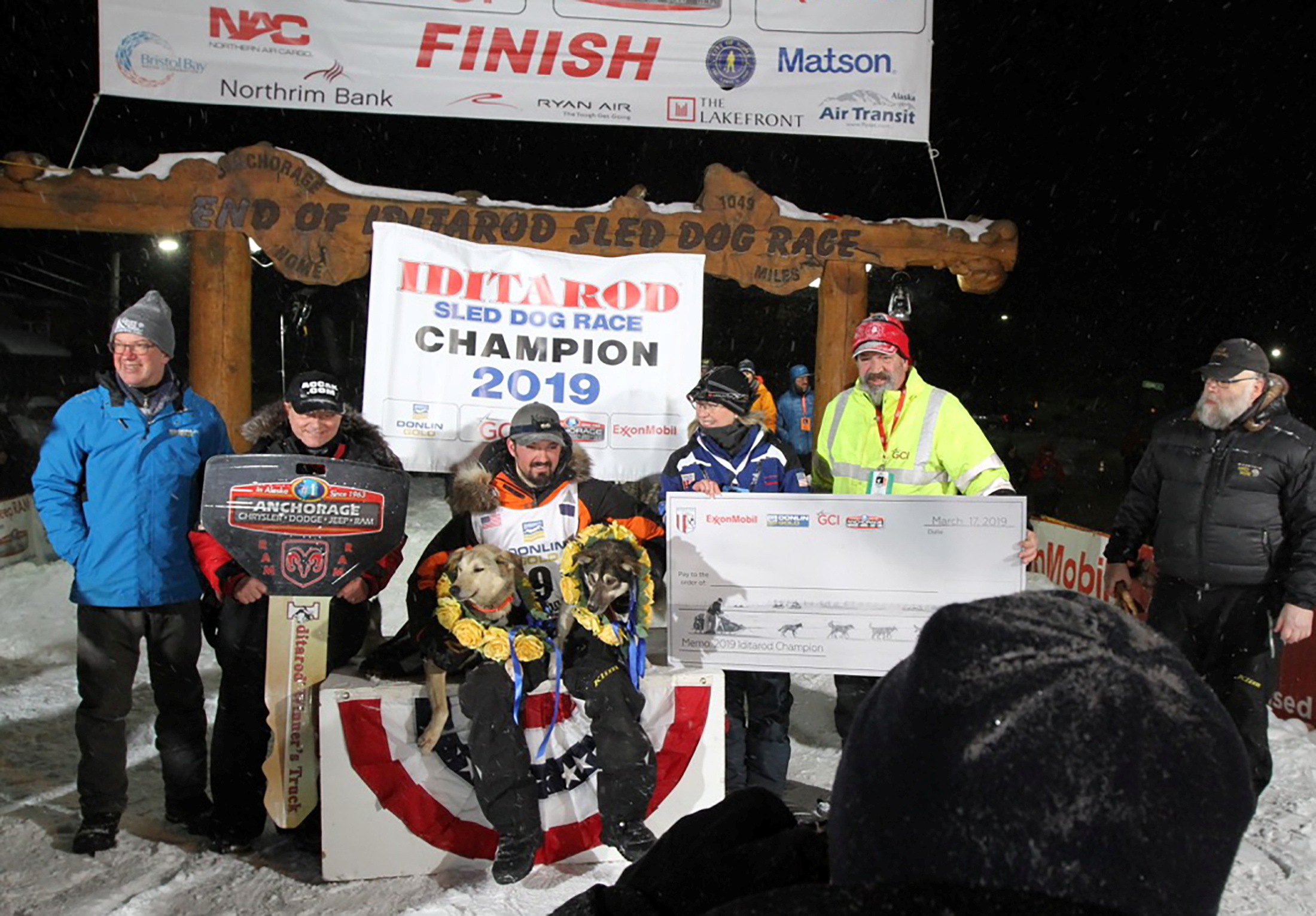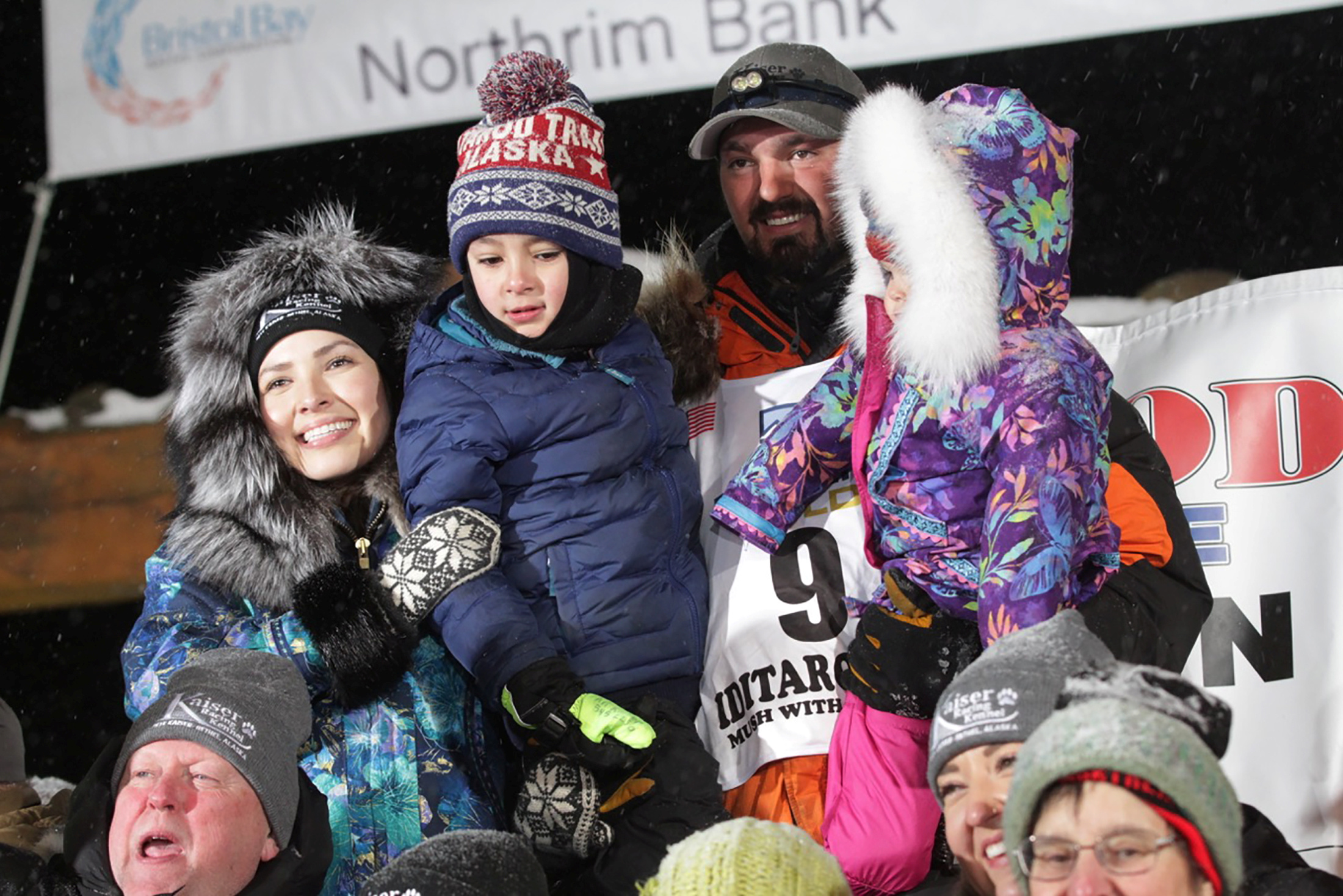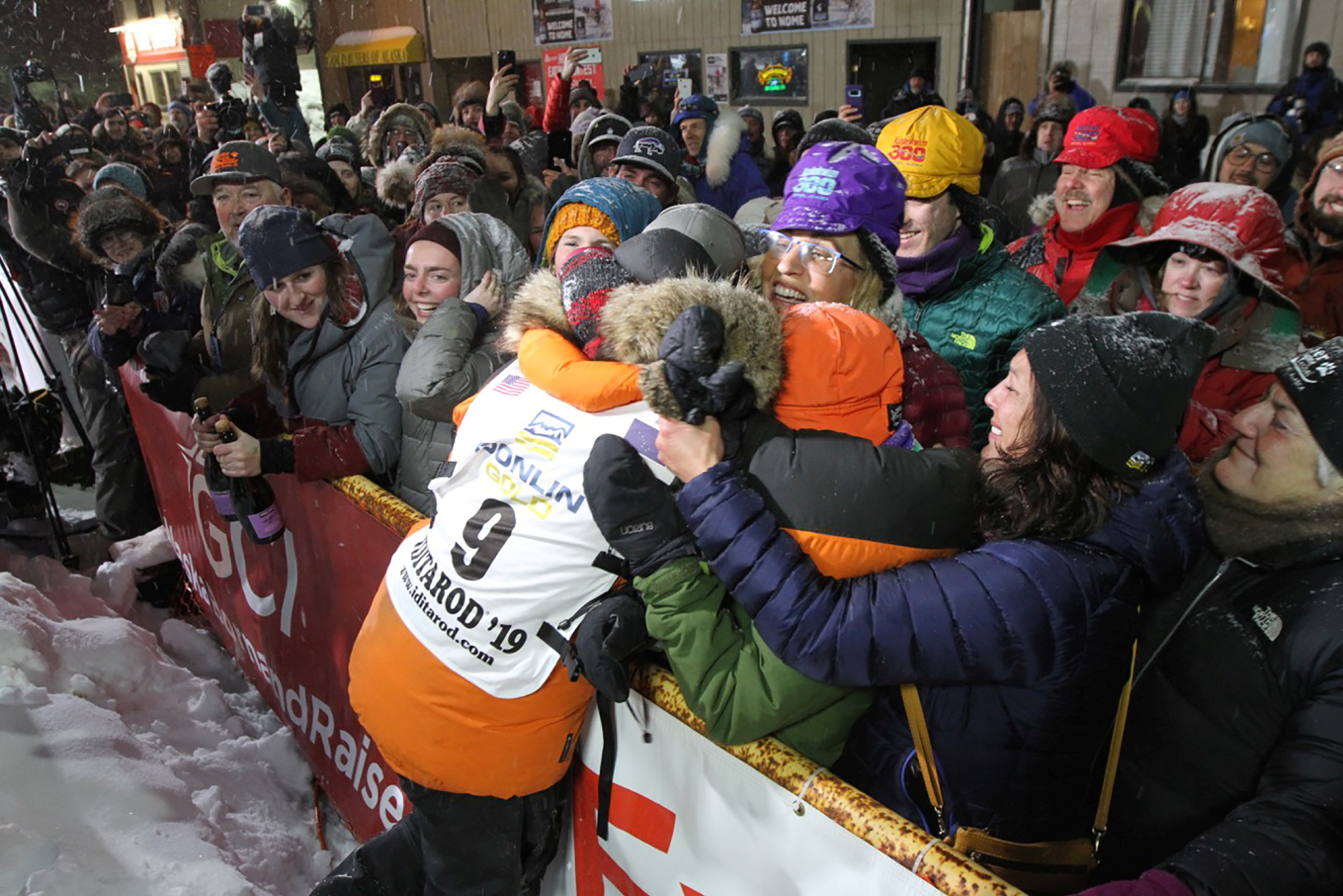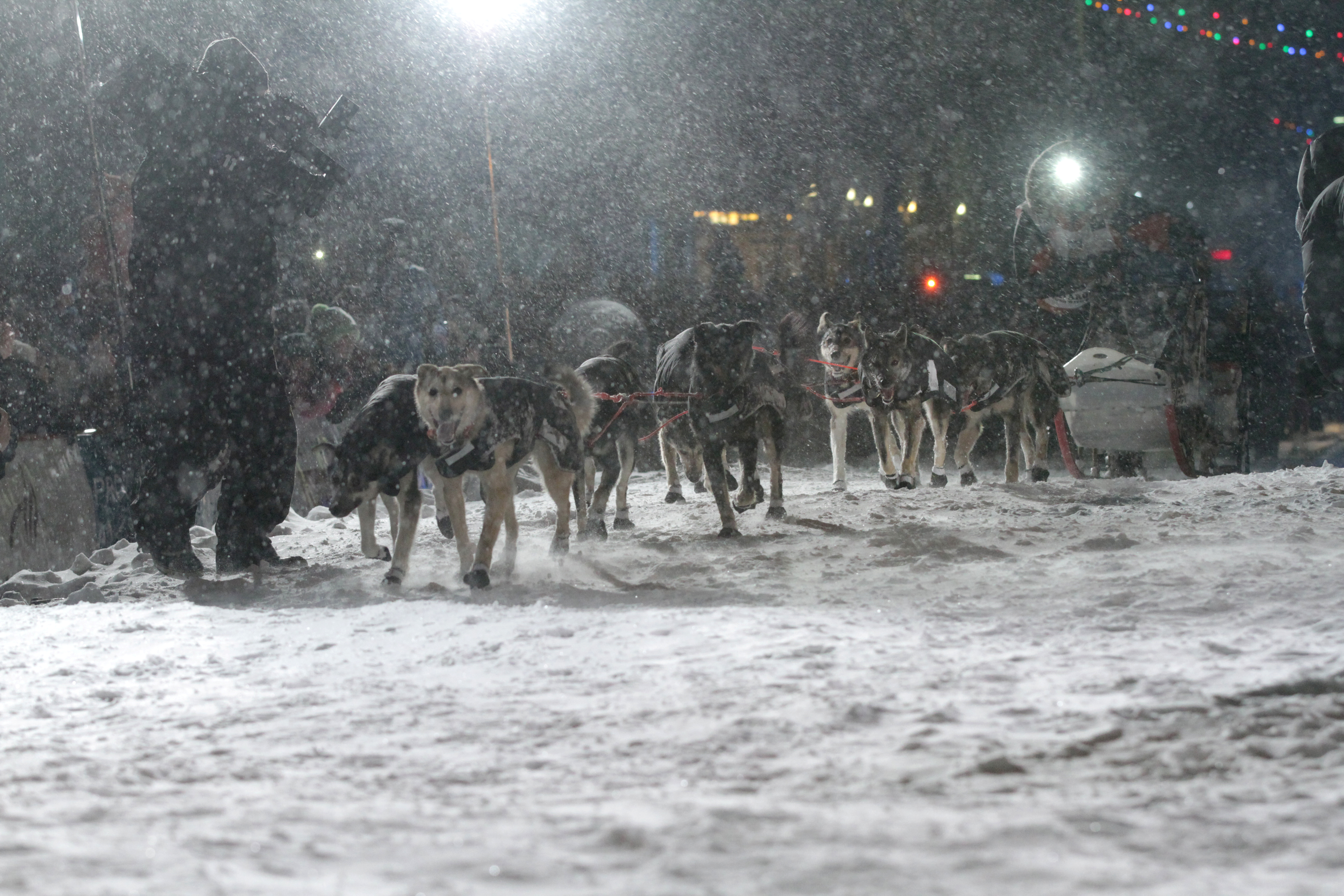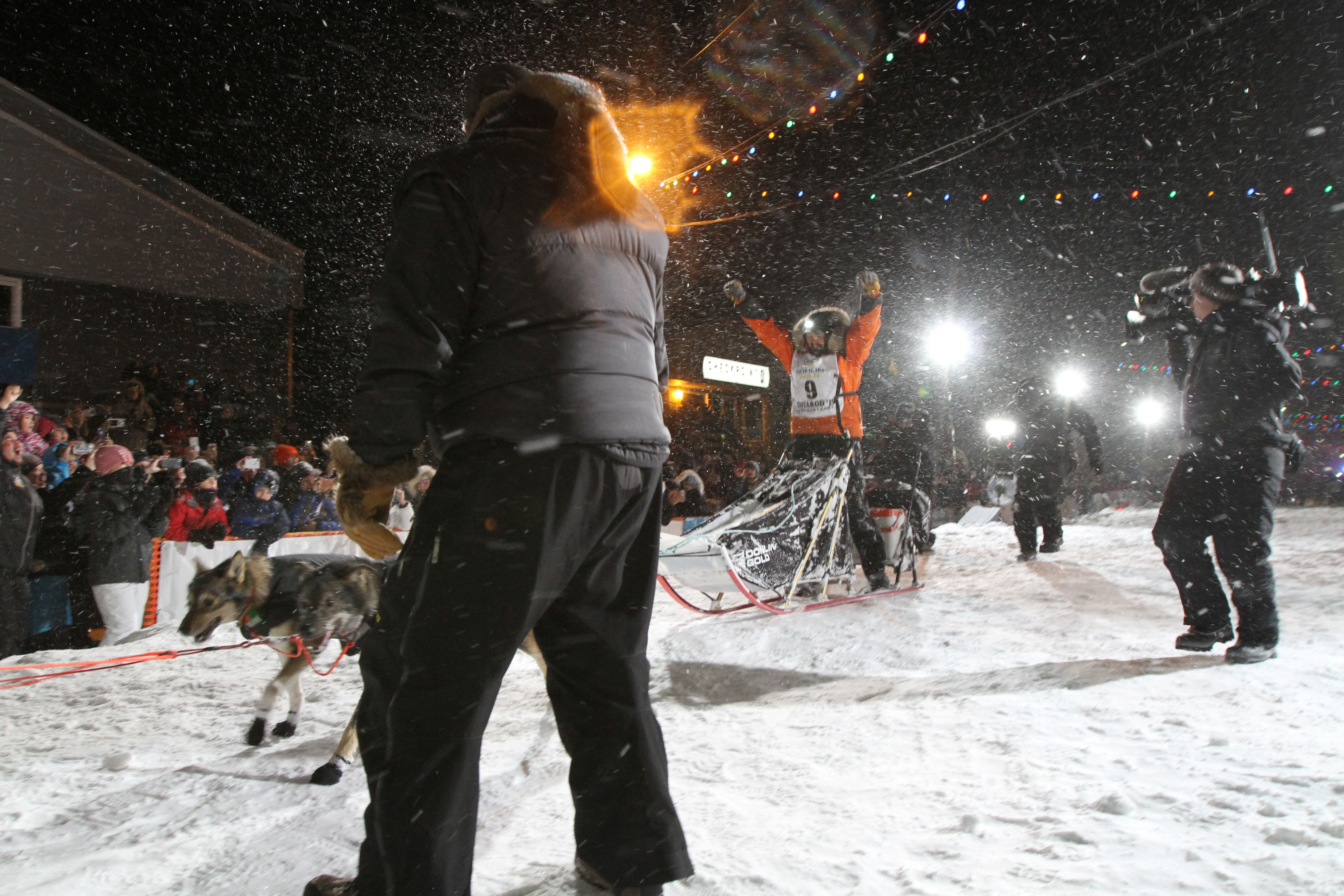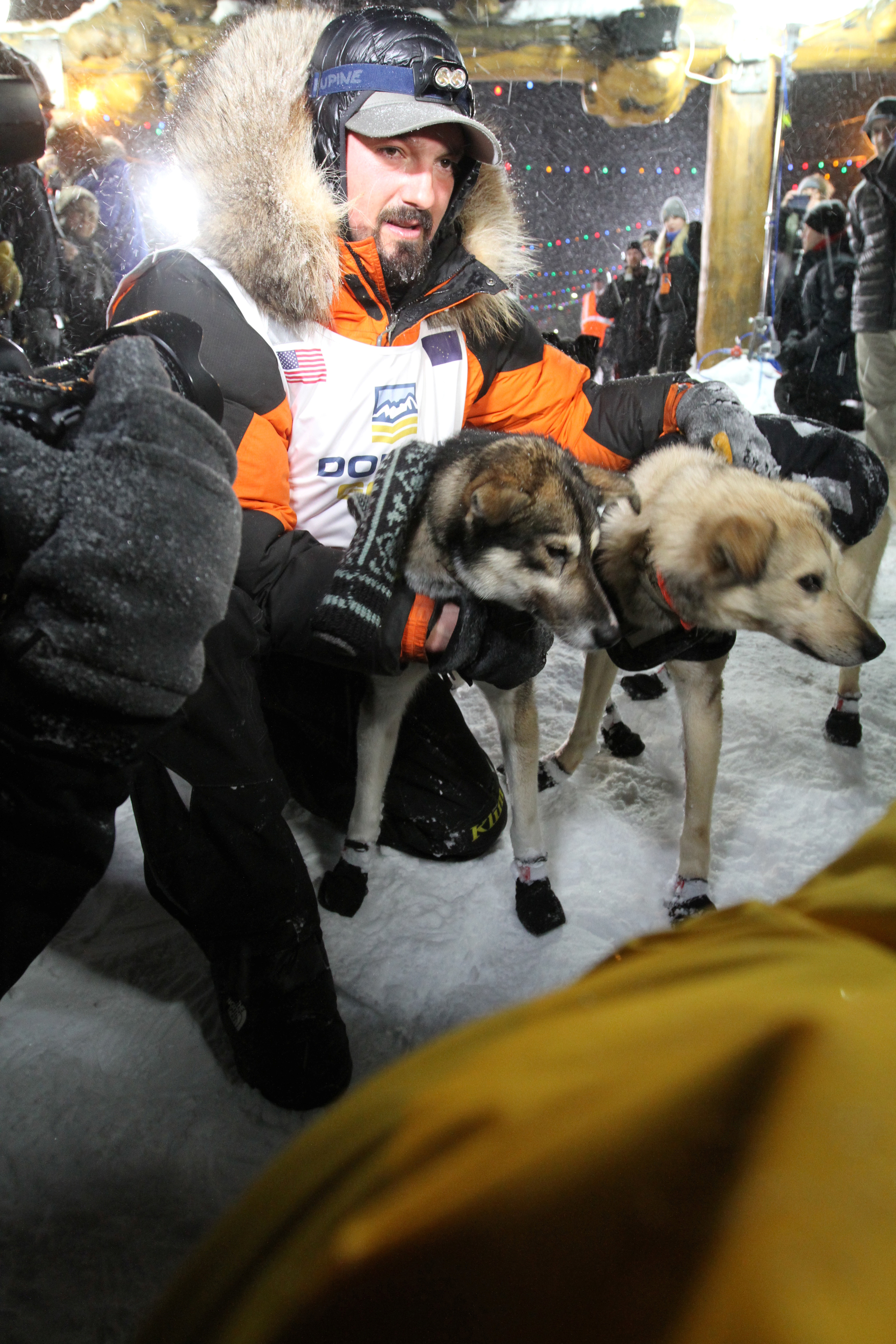Alaska musher Pete Kaiser wins his first Iditarod
Kaiser, who hails from the Yukon-Kuskokwim region hub village of Bethel, became the first Alaska Native musher since 2011 to win the sled dog race.
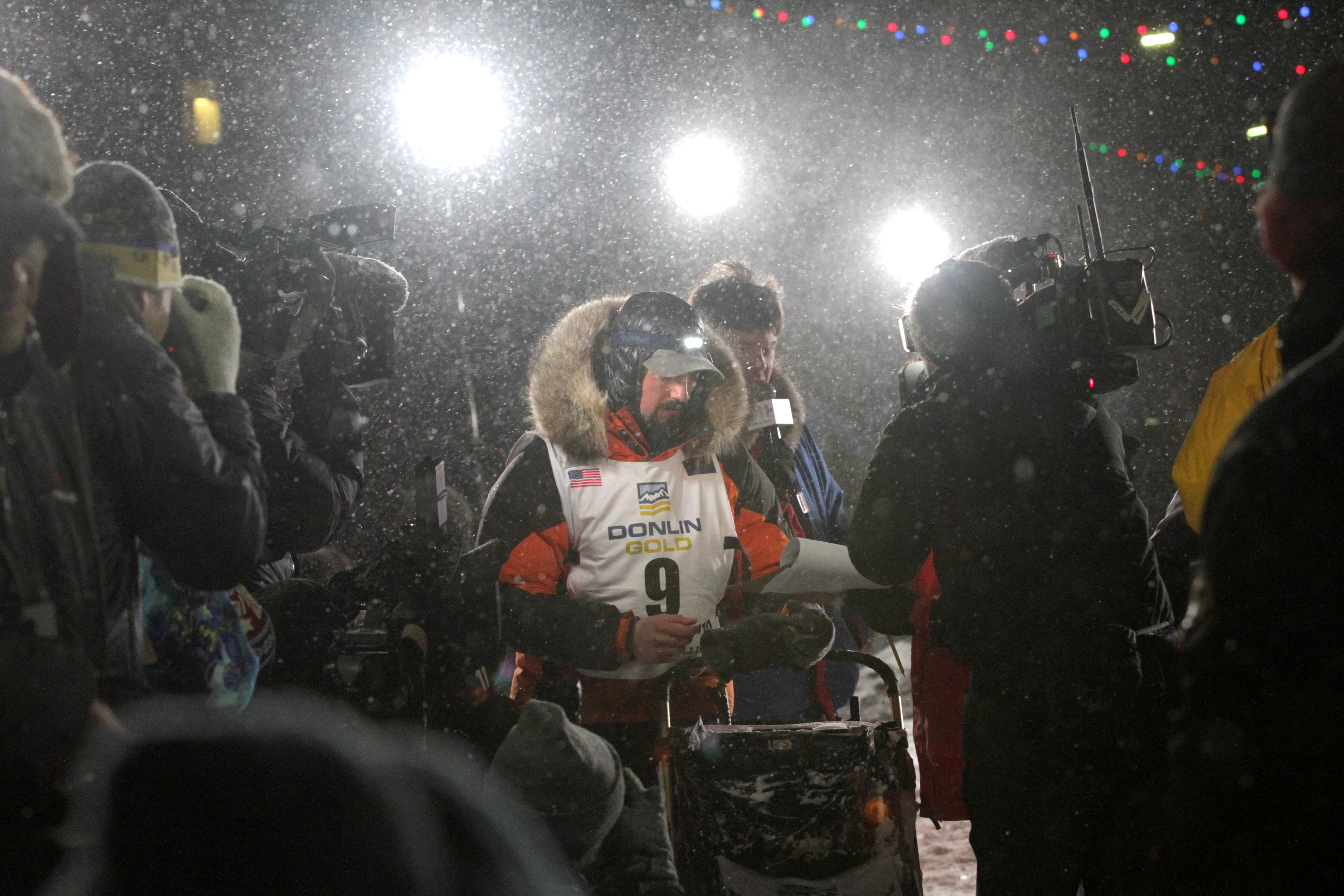
ANCHORAGE, Alaska — The 1,000-mile Iditarod Trail Sled Dog Race ended in a predawn close finish on the snow-covered streets of Nome on Wednesday, with Alaskan Pete Kaiser and his dogs barely holding off defending champion Joar Leifseth Ulsom of Norway.
Kaiser, 31, reached the finish line just 12 minutes ahead of second-placed Leifseth Ulsom, 32, in one of the closest finishes in Iditarod history. It was Kaiser’s first Iditarod win.
Crowds of cheering fans packed the city of Nome’s Front Street to watch Kaiser and his team sprint under the wooden arch that marks the end of the 1,000-mile (1,609-kilometer) Anchorage-to-Nome run.
His total elapsed time was nine days, 12 hours and 39:06 minutes. It was far from the record time of eight days, 3:40 hours, set two years ago by three-time champion Mitch Seavey.
Kaiser, who became the first Alaska Native musher since 2011 to win, pumped his arms into the air as he crossed the finish line, hugged his wife and small children and then reached into the crowd of well-wishers who had traveled from his southwestern Alaska hometown of Bethel.
He credited the victory to years of preparation, “every little detail coming into play, and having a pinch of luck.”
“I’m very, very fortunate to have the support system I have, the whole community of Bethel and the whole Kuskokwim River and all of western Alaska. It’s extremely humbling and motivates me every day to perform to my best,” he said at the finish line.
The finish line on Nome’s Front Street was lined by big crowds who had braved Kaiser’s early arrival at 3:39 a.m. local time (7:39 a.m. EDT) amid stiff winds and blowing snow.
Warm conditions, with heavy and wet snow, occasional rain and stretches of open water in areas that are usually frozen over at this time of year, hampered the 52 mushers in the race who were slowed to a soggy slog.
For his victory, Kaiser will get $50,000, part of a total $500,000 prize purse, and a new truck.
Until Monday, a different musher had been the frontrunner. French-born Nicolas Petit of Girdwood, Alaska, had a significant lead over his competitors until his dogs stopped on a section of the Bering Sea coastline about 200 miles (322 kilometers) from Nome and refused to go on.
Petit dropped out of the race Monday night, sending his dogs off the trail by snowmobile.
Coming in third and fourth were the Iditarod’s top women, Jessie Royer of Fairbanks and Aliy Zirkle of Two Rivers, Alaska. Paige Drobny of Fairbanks was in seventh place, making this year’s Iditarod likely to be the first with three women in the top 10.
Close finishes of less than an hour apart are unusual in ultra-endurance races like the Iditarod, but they have happened before. The closest was in 1978, when Dick Mackey came in one second ahead of Rick Swenson, with a winning time of 14 days, 18 hours, 52:24 minutes, his lead dog’s nose the first over the finish line, according to Iditarod records.
The Iditarod, run every year since 1973, commemorates a 1925 medical mission that has become part of Alaska legend. At the time, Nome was stricken by a deadly diphtheria outbreak, and the remote Gold Rush town could be reached only by dog sled. Officials used a dog-sled relay to ferry lifesaving medicine to the town.
